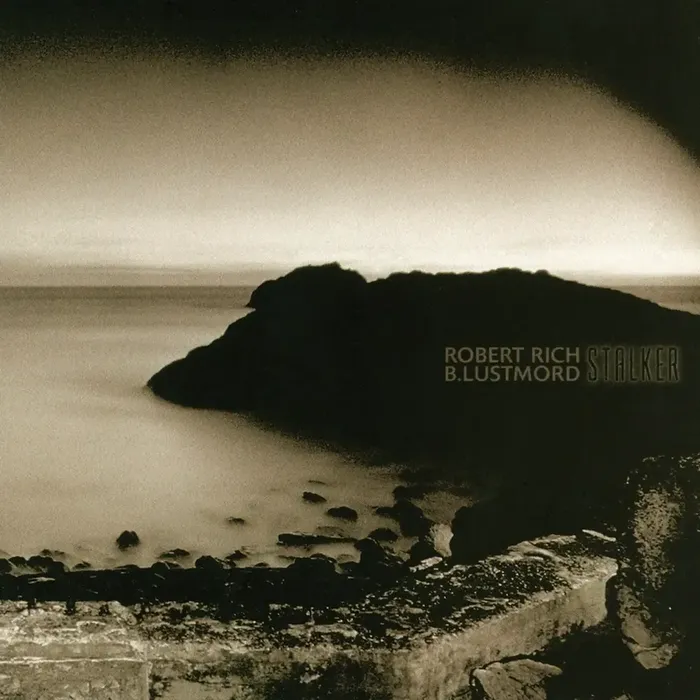Stalker by Robert Rich, Lustmord (Review)

A collaboration between Robert Rich and Lustmord — credited here as “B. Lustmord” — doesn’t make much sense at first blush. I’ve owned a copy of Stalker for years, and I still occasionally have trouble making sense of their pairing. After all, Rich made a name for himself by crafting lush, exotic soundscapes that suggest ancient jungles teeming with life and wonder, while Lustmord is, well, Lustmord. That is, the guy who conjures harrowing, darker-than-dark ambience out of samples and recordings of crypts, slaughterhouses, horror movies, and the depths of space.
But if you listen closely to Rich’s music, you’ll hear the occasional dark undercurrent, one deep enough to make the blending of his sonics with Lustmord’s quite seamless. (Not surprisingly, then, Stalker presages Rich’s more recent output, such as 2019’s Tactile Ground.) There are moments here that are distinctly Rich-esque, like the forlorn flutes that sound out over “Delusion Fields” and “Undulating Terrain” and the keening guitar drones on “A Point of No Return.” And while I’d never call anything on Stalker melodic per se, there is a certain musicality to even the album’s most ominous atmospherics that I certainly don’t associate with Lustmord’s name.
But even with any such musicality, the prevailing mood on Stalker is one of great foreboding, of wandering through a mysterious other-world where you weren’t exactly uninvited, but neither are you welcome. Of course, the album’s title gives the game away. Rich and Lustmord’s Stalker is an homage to Andrei Tarkovsky’s philosophical 1979 sci-fi film of the same name, in which three men make their way through a forbidden zone filled with unpredictable alien and supernatural phenomena.
As befitting Tarkovsky’s film — which is filled with visuals that are, by turns, stunning and bizarre — Rich and Lustmord’s Stalker can be awe-inspiring as well as discomfiting as its seven songs take their time to grow and evolve. Even seemingly familiar sounds have an oddness to them that leaves you feeling unsure about your perception of reality.
Are those distant birds calling out in the final moments of “Synergistic Perceptions,” or something far less terrestrial altogether? Do you even want to find out, or is it better to keep a safe distance and be on your way as you search for safer, more familiar environs? Of course, Stalker assumes that no such places actually exist, not while you’re listening to it, anyway. And if you’re any fan of darkly cinematic atmospherics, then you might find it surprisingly difficult to stop listening as Rich and Lustmord’s soundscapes envelope you.